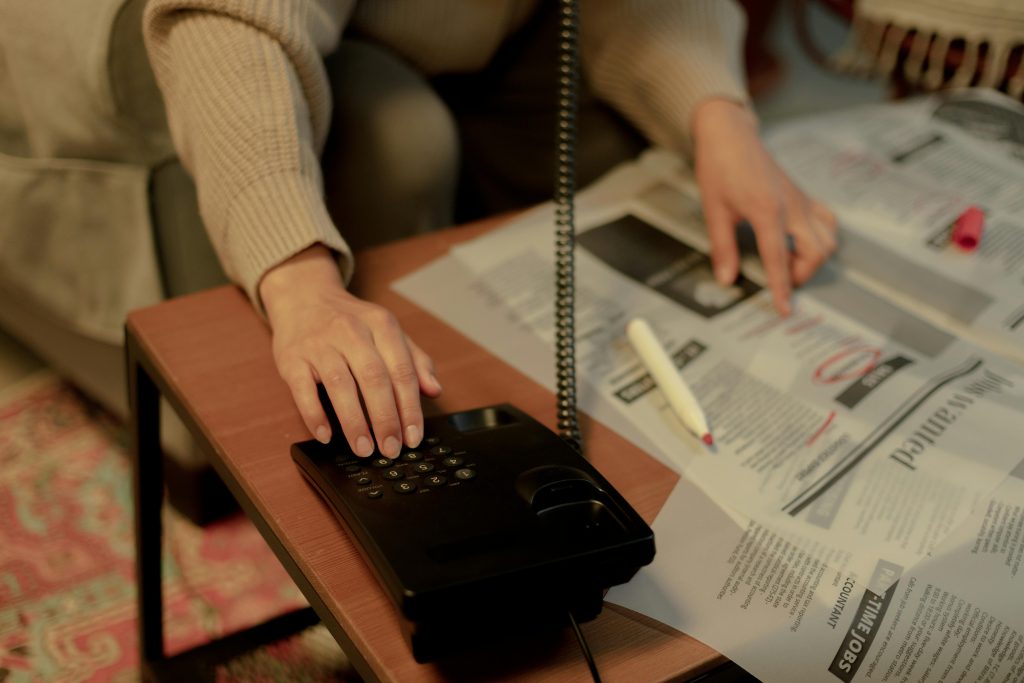
In the era of remote work and fast-paced recruitment, the telephonic interview has become an essential step in the hiring process. Whether you are a job seeker preparing for your first call or an experienced professional looking to brush up your skills, understanding the telephonic interview meaning, its nuances, expected questions, and best practices can set you apart from the competition. This comprehensive guide is designed to help you ace your next telephonic interview with confidence and clarity.
What is a Telephonic Interview?
Telephonic Interview Meaning
Before diving into strategies and tips, it’s crucial to answer: What is telephonic interview?
A telephonic interview is a preliminary screening conducted by recruiters or hiring managers over the phone. Its primary purpose is to assess a candidate’s qualifications, communication skills, and suitability for the position before scheduling in-person interviews. Telephonic interviews can range from informal chats to structured conversations with standardized questions.
Why Do Companies Use Telephonic Interviews?
Telephonic interviews have gained popularity due to their convenience and efficiency.
Key reasons why organizations opt for this method include:
- Wider Reach: Enables employers to connect with candidates from different locations.
- Time-Efficiency: Saves time for both recruiters and applicants.
- Cost-Effective: Eliminates the need for travel and reduces logistics.
- Quick Screening: Filters unsuitable candidates early in the process.
Preparing for a Telephonic Interview
Preparation is the key to success in any interview format. Below, we break down actionable steps to make sure you’re ready:
1. Research the Company and Role
- Study the Company: Understand its mission, values, products, and culture.
- Job Description: Analyze the skills and qualifications required.
- Industry Trends: Stay updated on any recent news or changes affecting the company.
2. Set Up Your Environment
- Quiet Space: Find a noise-free area for your call.
- Good Signal: Ensure your phone is fully charged with strong network connectivity.
- Keep Materials Ready: Have your resume, cover letter, and job description accessible.
3. Practice Common Questions
Simulate a telephonic interview conversation with a friend, or record yourself answering potential questions. This will help you refine your responses and boost your confidence.
Telephonic Interview Questions: What to Expect
While each telephonic interview conversation is unique, some common questions recur across industries:
Typical Telephonic Interview Questions
- Tell me about yourself.
- Why are you interested in this position?
- What do you know about our company?
- Describe your current/previous role and responsibilities.
- What are your strengths and weaknesses?
- Why are you leaving your current job?
- What are your salary expectations?
- Are you willing to relocate or work flexible hours?
- Describe a challenge you faced at work and how you handled it.
- When can you join if selected?
How to Answer Telephonic Interview Questions
- Be Concise: Without visual cues, recruiters rely on clear and succinct answers.
- Show Enthusiasm: Smile during the call; it positively impacts your tone.
- Support with Examples: Back claims with specific achievements or situations.
Telephonic Interview Conversation Example
Understanding the telephonic interview conversation example can significantly demystify the process. Here’s a sample:
Interviewer:
Good morning! Am I speaking with Priya Sharma?
Candidate:
Yes, this is Priya Sharma. Good morning!
Interviewer:
Hi Priya, this is Anita from XYZ Corp. Thank you for applying for the Marketing Associate position. Is this a good time to talk?
Candidate:
Absolutely, thank you for calling.
Interviewer:
Great! To start, could you tell me a little about yourself and your marketing experience?
Candidate:
Certainly. I’m a marketing graduate from ABC University with two years of experience at DEF Solutions. My work focused on digital campaigns, content creation, and data analysis to improve brand visibility. I’m passionate about innovative marketing strategies and keen to contribute to XYZ Corp’s growth.
Interviewer:
That’s great, Priya. Why are you interested in this role at our company?
Candidate:
I’ve followed XYZ Corp’s journey, and I’m impressed by your creative campaigns and social responsibility initiatives. I believe my skills in content marketing and analytics align with your goals, and I’m excited about the opportunity to be a part of your team.
Interviewer:
Thank you, Priya. We’ll get back to you after completing all interviews. Have a great day!
Candidate:
Thank you, Anita. Looking forward to hearing from you. Have a wonderful day!
Read 11 Types of Office Leaves in India
Tips to Ace Your Telephonic Interview
Excelling at a telephonic interview isn’t just about answering questions-it’s also about leaving a positive, memorable impression. Here are proven tips:
1. Mind Your Tone and Pace
With no body language to gauge, your tone, clarity, and confidence matter even more. Practice speaking slowly, clearly, and with energy.
2. Listen Carefully
Active listening ensures you respond appropriately. If you miss a question, politely ask the interviewer to repeat it.
3. Avoid Multitasking
Focus entirely on the call. Don’t browse or check messages during the interview.
4. Use Notes Strategically
One advantage of telephonic interviews: You can keep your notes handy. Prepare bullet points for key achievements, skills, and questions you want to ask.
5. Dress the Part
Dressing professionally, even if not seen, can psychologically put you in a formal and focused state.
6. Ask Insightful Questions
Show your interest by preparing questions about the role, team, or company culture.
7. Follow Up
Send a brief thank-you email after your interview, reiterating your interest and appreciating the opportunity.
Common Telephonic Interview Mistakes to Avoid
Awareness of common pitfalls can save you from unnecessary setbacks:
- Background Noise: Avoid receiving calls in crowded or noisy places.
- Interrupting the Interviewer: Wait until the question is finished before responding.
- Overly Long Answers: Keep responses concise and to the point.
- Neglecting Research: Failing to know basic facts about the company or role.
- Unprofessional Language: Maintain a formal, positive tone throughout.
Advantages and Disadvantages of Telephonic Interviews
Advantages
- Saves time and resources for both parties.
- Offers flexibility in scheduling.
- Reduces interview anxiety associated with face-to-face meetings.
Disadvantages
- Lacks non-verbal communication cues.
- Technical issues (dropped calls, unclear audio).
- Harder to build rapport and convey personality.
Telephonic Interview FAQs
1. Are telephonic interviews as important as in-person interviews?
Absolutely. Performance in the telephonic interview often determines whether you move forward in the process.
2. How long does a telephonic interview last?
Usually 15-30 minutes, but it can vary depending on the company and role.
3. Can I ask about salary in a telephonic interview?
It’s best to wait until the interviewer brings it up, but be prepared to discuss your expectations.
4. What should I do if I miss the call?
Apologize promptly and politely request to reschedule at the interviewer’s convenience.
Conclusion: Making the Most of Your Telephonic Interview
In today’s world, the telephonic interview is more than just a screening tool-it’s your first chance to make a lasting impression. By understanding the telephonic interview meaning, preparing thoroughly, practicing commonly asked questions, and following the aforementioned tips, you can confidently navigate this crucial step in your job search.
Remember, every great career opportunity may begin with the ring of your phone. Approach each telephonic interview conversation with optimism, preparation, and professionalism. You’ll not only stand out-you’ll also pave the way for success in future stages of the hiring process.
Whether you’re a fresh graduate or a seasoned professional, mastering the telephonic interview can be your gateway to career advancement. Good luck, and may your next call end with a job offer!
